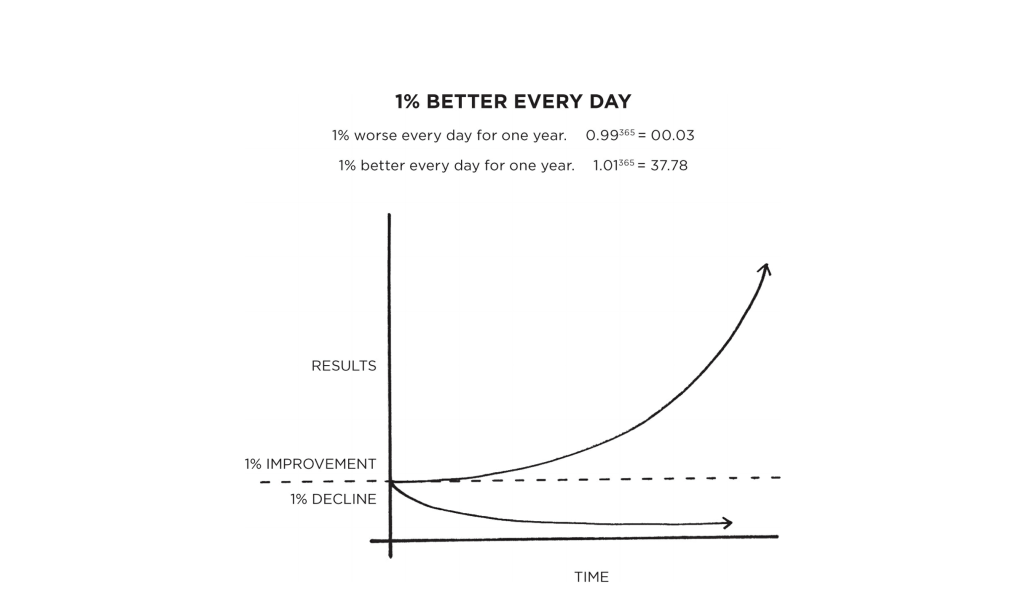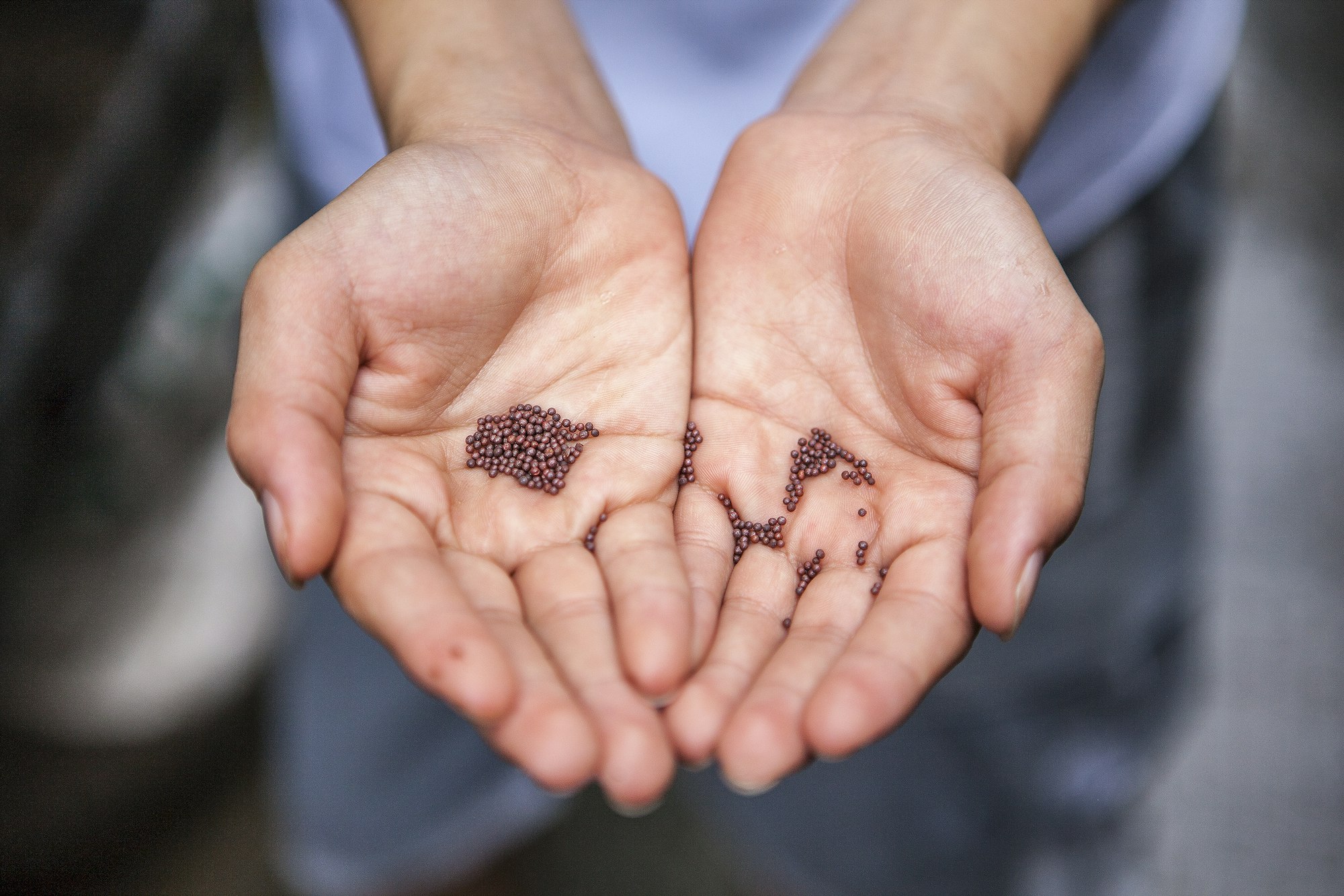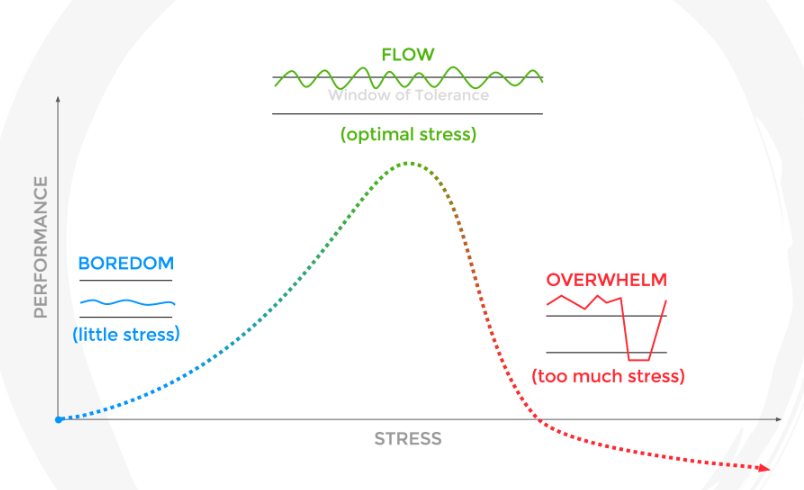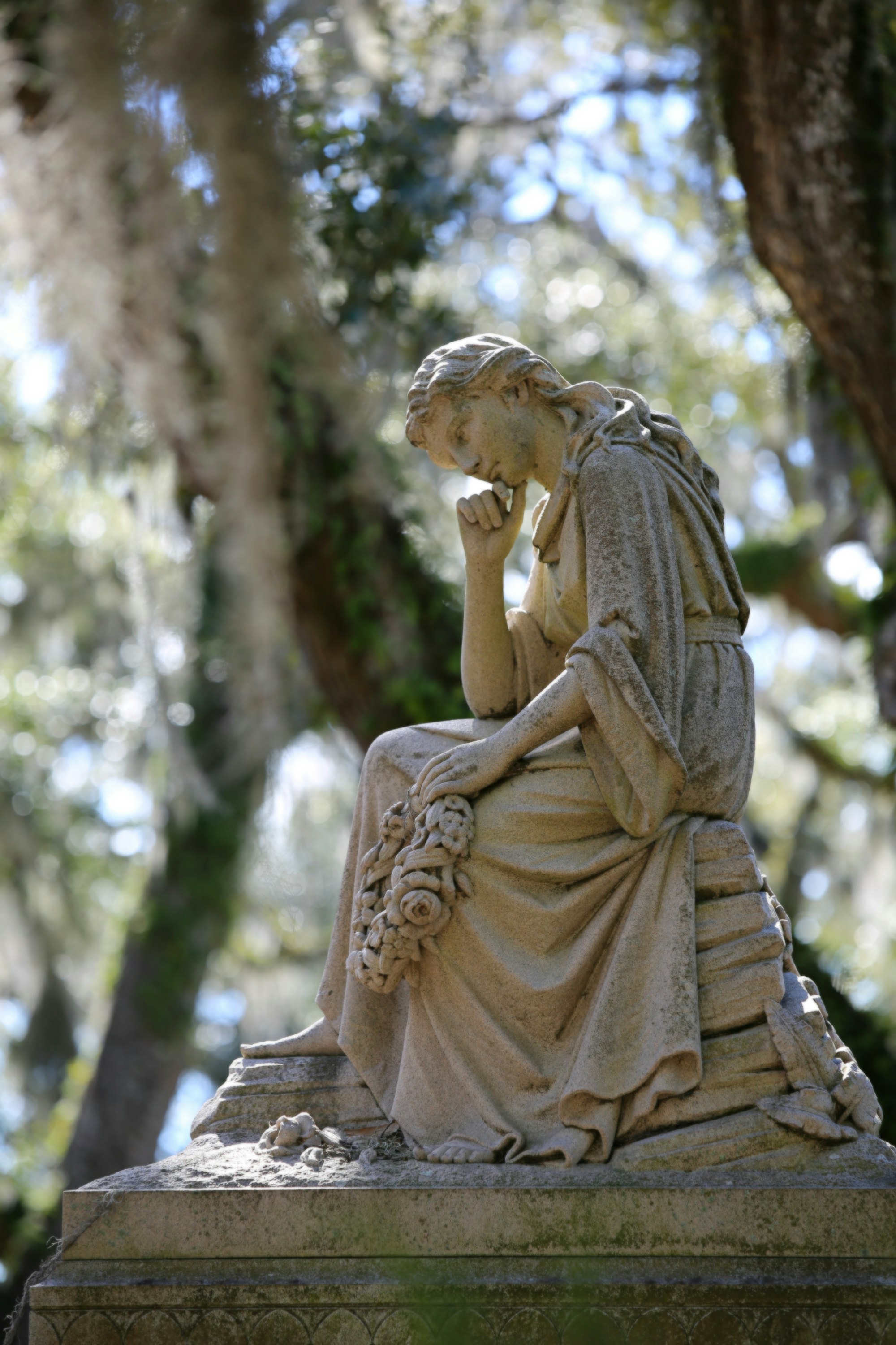‘Life isn’t about finding yourself, life is about creating yourself’ - George Bernard Shaw.
As I reflect on major life lessons in recent years I’ve come to appreciate that each year offers a different insight and 2019’s lesson for me was all about personal growth. Moreover, it was a year of experimentation, and learning unencumbered by arbitrary expectations where I gave myself room to explore, fail and learn. It was also the year where I learned to code, over-invested in my health and took investing seriously. So as compared to other years which have all been about speed and momentum it was a year of strengthening the foundations of my personal and professional life being more attentive not only to the speed I am moving at but refining the end-destination and enjoying the journey more.
As an intrinsically motivated person I value bias to action and speed of decision making but have gradually learned there is also merit in slowing down to be more deliberate and thoughtful about the goals I’m pursuing, my motivation for doing so and whether this really gets me up out of bed in the morning; in many ways sometimes you must go slow to go fast. I’ve written about my methodology for exploring in how to supercharge your next decade which has been a transformative experience for me.
I’ve learned that this dichotomy between fast and slow is critical in how I manage my energy and motivation in undertaking meaningful deep work to hit a flow state. An example of this is coding which has been on my list since I finished academic studies 8 years ago but for various reasons, I never created time to learn the skill meaningfully. In this vein going slow and taking time to immerse myself in coding this year has helped me to shed ego and false identity where I went from a highly capable knowledge worker in my industry to complete novice in a new and uncomfortable environment. Coding is hard, to say I hit my stride immediately would be an embellishment but it taught me valuable lessons on re-learning how to learn and immersing myself in difficult subject matter.
The experience overall presents an interesting question to me around the most optimal point in an individual’s life span for skill exploration vs skill exploitation. I don’t believe these are mutually exclusive concepts but that the human experience makes the latter complementary to the former and it is through leaning into weaknesses that we can realize our true strengths. So in learning to code I was reminded and instilled with a unique appreciation of the art itself but also what makes my own skills and set of abilities unique. It is in this context then that 2019 shone a familiar light on what motivates me, my vision for the long-term and the steps required to get there.
I’ll reflect on this as I examine my goals for 2020 but first want to open the kimono on how I fared with my personal goals in 2019.
What did I accomplish in 2019?
👍 Achievements and highs
-
Learned to code front end and vanilla javascript -
Spent 2 weeks in San Francisco on leadership development and worked with leadership coach all year -
Completed a wim-hof workshop -
Built a bi-weekly yoga habit -
Changed to a paleo diet (no-dairy, no-gluten) -
Started red-light therapy for mobility and fitness -
Built a regular meditation habit (every other day) -
Cut alcohol out, rarely drink anymore (only on special occasions) -
Built a running habit (then tore tendon) -
Gratitude journal every day -
Diversified finances and did first early-stage investments -
Lost 12lbs in weight and back to natural weight -
9 countries, 15 cities
👎 Failures and lows
-
Lack of consistency in gym (injuries) -
Sporadic focus on podcast (prioritized coding bootcamp and learning code instead) -
Blog writing habit failed -
Read 14 books (target was 24) -
Early-riser (tried 5AM club but failed, need to be more realistic for 2020) -
Excessive smartphone screen time
What did successes and failures teach me?
Be long-term greedy
Winners and losers set the same goals. The mere act of goal setting does not guarantee any unfair advantage in attainment of those goals. Where an unfair advantage is created is in building a systematic approach that ensures you show up and contribute to the goals of those systems consistently every day. Any habit that has stuck for me is due to the creation of a system so really my focus in recent years has shifted to optimizing for systems instead of goals.

Goals are short-term constructs that help support systems but ultimately you want those systems in play in perpetuity. As James Clear states ‘true long-term thinking is goal-less thinking. It’s not about any single accomplishment’. As an example my morning routine is supported by a system and various visual cues deliberately designed in my apartment to start my morning; I know that if my morning routine starts with a gratitude journal everything falls into place and I win the day. My financial goals are supported by automated systems to diversify assets I’ve set-up to fulfill those short-term goals. My performance in work/industry is set-up by systems I’ve set-up to receive feedback from mentors, coaches and regular introspection and self-review along with commitments I’ve made to honor the system through short-term goals.
Moving to this long-term view has enabled me to think more robustly around what additional skills I want to accumulate, safety-nets I want to have in place and relationships to help support those systems and the best future version of myself. This is not to say you should not set yourself audacious short term goals, you absolutely should but your systems should be the foundation.
Less is more
Last year I optimized for a breadth of activities and experimentation learning many new things but the reality is that I was on a wild good chase with a lot of my goals through taking on a huge project in learning to code which I became obsessive about. Outside of work I was using my weekends and evenings coding, podcasting, trying to write, investing in my relationship, switching to a paleo lifestyle and putting time into startup side projects. As a time management and productivity geek, I’m a proponent of Parkinson’s Law which dictates that work expands so as to fill the time available for its completion. However, in practice this does not apply to creative work or learning and it taught me lessons in the trade-offs around depth vs breadth of focus.
On balance, what I learned from last year’s projects were valuable lessons I needed to complete. I am happy I took those projects on as they answered some open questions I’ve had about ideas for the future but my focus for 2020 is to align my compass with strengths and passions. Transparently, I thought I could place all my shiny projects in a one-size fits all container but the reality is that I could not and that is okay and I naturally reached an equilibrium towards the end of year prioritizing my relationship, health, and side-projects.
Explore vs exploit
In computer science, there is an algorithm named explore/exploit. It is one of the more crude algorithms sometimes called the multi-armed bandit but in truth very effective. The algorithm functions to find more potential in an unknown quantity whilst balancing the current potential that exists in a known quantity. In short, it tries to figure out whether the grass is greener on the other side.

Throughout 2019 I was in full explore allocating the majority of my time to self-development. I always wanted to learn to code as coding is undoubtedly one of the highest-leverage activities for any individual. I spent 6 + months learning to code via physical boot camps and online courses. As somebody that has worked in product-led startups like Stripe and Twitter I engage with engineers daily but only as a business stakeholder not at code-writing level. A year on I now understand the principles of computing and software development, how to think in code and even made some cool projects; it was a great introduction to the world of software development.
Notwithstanding to become a production-level developer worthy of startup IP is a function of years spent full-time not months or years spent part-time so I decided against investing further time as there is an opportunity cost to this. I believe given my unique skill-set there are infinitely higher leverage activities for me to do and exploit, meanwhile neglecting those higher leverage activities creates time anxiety. As Anne Laure Cunff states 'beating time anxiety means shifting our focus from outcomes to output so we can spend our energy on things we can actually control'. Simply put, I’ve learned that becoming a fully proficient developer is not the shortest distance between me and my future goals.
Discipline and mental toughness
I benefit from discipline in my life and know that long-term this is a life-decision for me; when I am in routines and systems I’m a better version of myself and more productive. Last year I took this a step further in undergoing significant lifestyle changes moving from a typical western diet to a modified paleo diet with no gluten, no dairy, minimal sugar and prioritized sleep, and exercise.
Candidly, the reason behind these changes were some niggling health issues that popped up which lo and behold completely disappeared after a year of an organic diet and said lifestyle adjustments. Moreover it is widely known that mind and body are highly-linked which I know to be true in the impact I have seen from building a regular meditative practice on overall cognition and well-being. In Pali and Sanskrit the word meditation translates as to ‘cultivate the mind’ and it is in this spirit that I am long-term greedy about meditation. In combination all of these changes have boosted cognition, increased my energy and self-awareness but most importantly elevated my mental toughness and grit to the next level which I view as a long-term competitive advantage.
Building a portfolio of life’s work
I’m a firm proponent of IKIGAI. This process informs many of my life priorities as an individual and has been invaluable for me. So too, life experience impacts IKIGAI. Many years ago I lived in a black and white world of prioritizing career and finances. As I was living in that world I received advice from a mentor to think of a career in technology as an actor would a portfolio of work and not to think of life in such binary modes of career and reward. The comments didn’t really land with me at the time as I was optimizing for outcomes valued by a different version of myself and that was my interpretation of balance. Years later the advice resonates. I look at this advice on two dimensions :
-
Deep-focus on high leverage initiatives in the short to medium-term -
Compulsive focus on long-term direction aligned with values and self-actualization
My challenge is making sure I work on the highest leverage activities with smart people in the short-term and eschew the need to ‘feel busy’ or ‘productive’ which I’ve observed as a potential trap for me given my need to feel like I am adding value and meaning.
What does the future hold?
In the writing world, there is a distinction between gardeners and architects. The latter plan meticulously and the former incubate an idea, nurture it and let it grow. Overall I think goal-attainment is far similar to gardening than it is to architecture. Gardeners know what seed they’ve planted and how they expect it to grow but are also willing to traverse opportunities and challenges as they come along as opposed to architects who may struggle with unexpected events outside of the plan.

I’m likely more of a gardener than an architect in that gardeners will select and incubate specific ideas to grow and develop over time. I also plan but not obsessively down to micro-level detail. With that said, some of my focus areas for 2020 and the next number of years will revolve around nurturing systems that create these effects:
Scale and high-leverage
I plan to focus only on high-leverage activities that scale and are aligned with my future priorities. Oftentimes my attention span and available time is stretched across multiple areas both internal and external to my control and realistically I am complicit in creating that state. Success is ensuring that I optimize for scale and leverage on projects I choose to prioritize as opposed to subconsciously seeking immediate and short-lived gratification on projects which are orthoganol to my long-term goals and I can say no to. The big themes I choose to invest time and energy into in 2020 are content, communities and product.
Prioritize to actualize
It goes without saying that my relationship and career are two major priorities in my life. Beyond this I plan to playfully lean into and prioritize the development of specific ideas in my spare time; particularly the intersection of the below:
-
SaaS and product to aid growth and go-to-market -
Empowering curated founder communities at scale -
Enabling operators to scale companies faster
A deficit of ideas is not a problem in my world, the challenge is deciding what ideas are worth working on. Given my enthusiasm to stretch myself this has been challenging in the past so this blog post is designed to act as a Ulysses contract with myself to only focus on these areas.
Optimizing for a flow-state
In positive psychology, a flow-state is when you are fully immersed and generating energy through activity. Personally I’m too long in the tooth to spend time on activities I do not enjoy or drain my energy so my modus operandi is to optimize for flow.

Equally, a flow-state is a high predictor of achieving mastery and purpose in your life so think of this as a smart-cut and optimize for those activities that give you energy and passion. Being in a flow state does not mean neglecting the pursuit of challenges and new subject matter; it is the exact opposite you should oscillate at the edge of chaos just beyond your tolerance point. This is the state where you achieve growth outside your comfort zone but in a satisfying state.
Thinkers and doers
Whether you believe the adage that you are the average of the five people you spend the most time with or not logic dictates these friendships will heavily influence you. In this vein, the people I choose to spend most of my time with are cerebral thinkers, creative doers and connectors. In these groups, ideas and thoughts are exchanged on merit not weighed down by artificial societal constructs which can hinder progress and discussion.

London is amongst the best places on Earth for attracting people of this mindset, full of brilliant individuals and thriving communities like the Inter Intellect run by Anna Gat that I’ve had some involvement with this year. I’ve also launched a fledgling community for aspiring writers named ‘A Writer’s World’ mostly composed of founders, VCs, makers, software engineers and startup-folk. Similarly I’ve put in place many new relationships with special founders and VCs like Semil, Peter Vesterbacka, Ilya Volodarksy, Tina Sharkey and many more on another of my side-hustles The Scaling Startups Podcast. A big theme in 2020 will be the continuation of having a bias to community, collaboration and openness. People are force-multipliers for systems and all great ideas, products are borne of multiple people, no man is an island.
Cultivate health as a competitive advantage
In Stubborn Attachments, Tyler Cowen talks about crusonia plants. The Crusonia plant is a mythical crop which generates more output each harvesting season. You just need to plant the seed. My goal since reading Cowen’s book has been to plant lots of Crusonia plants in every aspect of my life from finances, health, career, wellness and more. Notwithstanding I view this construct as being most relevant to health optimization. In the last 18 months I’ve followed the principles of biohacking which means changing your internal and external environment to enhance the body and upgrade the brain. I will leave it for another blog post to describe what my approach entails, don't worry it doesn't involve micro-chips! I subscribe to the philosophy that a healthy body and disciplined mind builds high performance in life. Call it a system of systems if you will but health optimization is one crusonia plant that has compounded the most rapidly of all in my plans.
What are my goals for 2020
The danger is that we spend so much time optimizing systems and goals that we forget how to live life. Rest assured I will be doing many things to enjoy the journey and ensure balance and more importantly craic and banter (Irish phrase for fun) exists in my life. Reflecting on my goals for 2020 its no surprise to me that the focus areas are markedly similar to recent years and this indicates progress. Compound interest is the greatest invention of all time and it is no different in finances than it is in personal goals. My plan is to work consistently on these themes for the next number of years. I am optimizing for crusonia plants and like a gardener nurturing and incubating seeds to see how they may grow.
If you are working on similar ideas or have similar thoughts I would love to hear from you on Twitter.
💵Make 3 angel investments in startups
— Ross Sheil (@RossySheil) January 20, 2020
⚖️Develop personal CRM
🛠️Build @scalingstartups and https://t.co/dVg3WBlS7F subscribers
✏️Write 3 blog posts per month
🧘♂️1 x Yoga class weekly
🏋️♂️Every other day
🧠20 min meditation daily
🚴♀️Coasts and Castles Newcastle to Edinburgh

